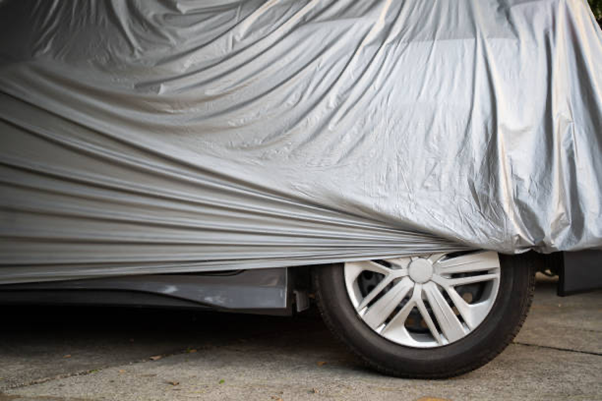Maintenance tips for a car you don’t drive much

Maybe you’re a homebody or you have another car you use as your daily driver. Whatever your reason is, don’t forget that the car you leave covered in your garage needs some care and love, too. But how exactly do you care for a car you don’t drive much? Got the same question? Read on to find out how:
Drive it
Yes, infrequent drives need a stroll around the block from time to time. When a car sits idle for extended periods, the battery, fluids, and various components can deteriorate. To prevent this, make a habit of starting your car and letting it run for a few minutes at least once a week. This helps keep the battery charged, circulates the fluids, and lubricates vital engine parts. Short drives around the block can be beneficial, as they warm up the engine, prevent fluid stagnation, and minimize moisture accumulation.
Use a battery tender
If it can’t be helped to park the car for long periods, using a battery tender is the best way to maintain your battery’ charge level. A battery tender, also known as a trickle charger, prevents a car’s battery from wearing out prematurely. However, it's crucial to use a "smart" battery tender that automatically shuts off when the battery reaches full charge. Overcharging a battery can lead to damage or even fire hazards. Additionally, ensure that the battery tender you choose is compatible with the specific type of battery in your car, as some chargers may not work with certain battery models.
Check fuel systems
When a car remains unused for extended periods, fuel can degrade and lead to issues such as clogged injectors or a malfunctioning fuel pump. To prevent these problems, use a fuel stabilizer recommended by your vehicle's manufacturer. Additionally, consider filling the gas tank with high-quality fuel before long periods of inactivity to minimize moisture buildup and prevent fuel system deterioration.
Check tires
Infrequently driven cars can suffer from flat spots on the tires due to prolonged periods of immobility. To prevent this, inflate your tires to the recommended pressure and consider using tire cradles or investing in a set of jack stands to relieve pressure on the tires when parked for extended periods. Additionally, regularly inspect the tire tread depth and sidewalls for any signs of wear or damage.
Change fluids
Fluids play a crucial role in your car's overall health, so it's essential to check them regularly. Check the oil level and condition, brake fluid, coolant, transmission fluid, and power steering fluid. If any appear low or contaminated, consult your vehicle's manual or a professional mechanic to determine the appropriate steps to replenish or replace the fluids.
Keep it safe from rodents and insects
A car kept in the same spot for a long time is an attractive playground for rodents and insects. They are hard to keep away but you can try traps. Just make sure children and pets don’t come near such devices.
Final thoughts
Owning a low-mileage car requires attention and care to keep it running smoothly. By incorporating regular start-ups, maintaining fluid levels, caring for tires, preserving the fuel system, and seeking professional inspections, you can prolong the life of your infrequently driven vehicle. Remember, consistent maintenance is key to avoiding costly repairs and ensuring your car is always ready to hit the road when you need it.